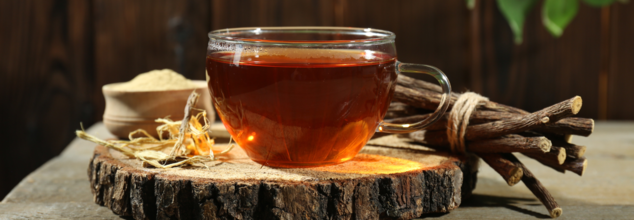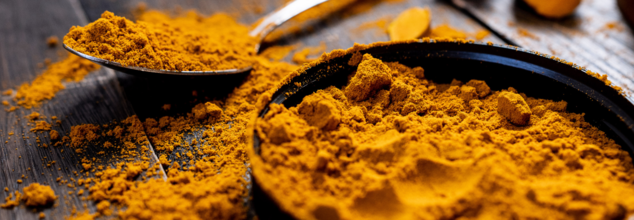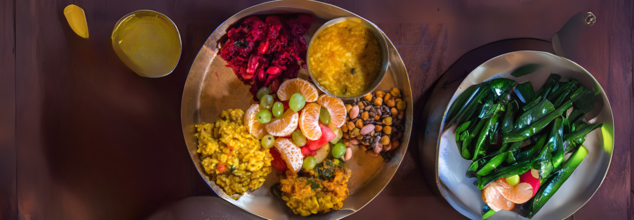
(Credit-Canva)
Ayurvedic Immunity Boosters You Should Add To Your Daily Life, According To Dinacharya & Ritucharya
Ayurveda has been a part of Indian culture for a millennia, in fact, it is history itself, as we learn about what medicines and remedies were used before modern medicine came into being. Derived from nature itself, Ayurveda is the science of life that allows you to heal naturally as well as live an organic and healthy life! Ayurveda enhances your body’s natural defense system. There are a lot of ayurvedic remedies you find on the internet, but not every remedy can be used. There are many basic ayurveda health tips that do not require all the paraphernalia.
Most of the medicines in Ayurveda comes from the things around us, here are some daily healthy habits given by the Ministry of AYUSH, you can adopt in your daily life to improve overall health and well-being. These care tips come from ‘Dinacharya’ which are daily regimes and ‘Ritucharya’ which are seasonal regimes that you should follow for a healthy life. These measures were recommended by Vaidyas across the country and the advisory suggested these to be followed at the individual's convenience.
Warm Water
Drink warm water throughout the day. Many studies have shown that warm water promotes digestion, increases circulation as well as relieves you from cold!
Yoga, Pranayama, and Meditation
Practice Yogasana, Pranayama (breathing exercises), and meditation for at least 30 minutes daily. Yoga is an all body exercise that allows you to unlock your healthy self, whether it is through muscle health, flexibility or many other benefits like heart, and mental health
Spices in Cooking
Use spices like Haldi (turmeric), Jeera (cumin), Dhaniya (coriander), and Lahsun (garlic) in your cooking. These spices are known for having many health benefits like Haldi for inflammation, jeera for digestion, Dhaniya for blood pressure control and Lahsun for boosting immune system.
Chyavanprash
Start your day with a teaspoon (10 grams) of Chyavanprash to boost your immunity. This traditional Ayurvedic jam is rich in antioxidants. For those managing diabetes, opt for the sugar-free version to maintain blood sugar levels.
Herbal Tea (Kadha)
Drink a tea made with Tulsi (basil), Dalchini (cinnamon), Kalimirch (black pepper), Shunthi (dry ginger), and Munakka (raisins) once or twice a day. You can add jaggery (natural sugar) or lemon juice for flavor. Enjoy this Kadha once or twice daily to enhance respiratory health. Add jaggery or lemon for taste and added benefits.
Clove and Honey
For cough or throat irritation, mix clove powder with natural sugar or honey. Consume this mixture 2-3 times a day to alleviate symptoms. Clove's natural properties can provide relief.
Golden Milk
Prepare Golden Milk by mixing half a teaspoon of Haldi (turmeric) powder into 150 ml of warm milk. Consume this soothing drink once or twice daily to reduce inflammation and strengthen your immune system. It's warm, comforting nature is ideal.
Other Immunity System Boosting Practices You Can Try
Nasal Oil Application (Pratimarsh Nasya)
Apply a few drops of sesame oil, coconut oil, or ghee into your nostrils, morning and evening. This practice, known as Pratimarsh Nasya, helps moisturize nasal passages and improve respiratory health.
Oil Pulling
Practice oil pulling by swishing a tablespoon of sesame or coconut oil in your mouth for 2-3 minutes. Follow with a warm water rinse. This oral hygiene technique helps detoxify and promotes healthy gums.
Steam Inhalation
Relieve congestion and soothe your throat with steam inhalation. Add fresh mint leaves or caraway seeds to the water for added therapeutic benefits. Practice this once daily to ease respiratory discomfort.

It’s Not Just Alcohol, Ayurveda Says Your Anger Might Be Damaging Your Liver
You’re eating clean, barely touch alcohol, and still feeling bloated, irritable, or constantly fatigued. Your liver panels are slightly off, but nothing seems to explain why. Now, what if the answer wasn’t in your plate or your glass—but in your pent-up rage or that unresolved tension you brush under the rug?
Ayurveda, the ancient Indian system of holistic medicine, has long warned us about something modern science is just beginning to catch up with—that your emotional landscape, particularly unchecked anger and stress, can be just as damaging to your liver as any toxin. Yes, your emotions might be silently inflaming your liver, disturbing digestion, and setting off a chain reaction that messes with everything from hormones to metabolism.
Anger isn’t just a fleeting emotion but a heat that fuels inflammation, stagnation and long-term organ dysfunction. Dr. Manoj Kutteri, Ayurvedic doctor and Naturopathy expert, reveals how our modern “go-go-go” lifestyle—laden with cortisol, quick fixes, and bottled-up emotions—throws our doshas off balance and overburdens the liver, the body’s chief detox organ.
When we think about liver damage, alcohol is often the usual suspect. While it's true that excessive alcohol consumption takes a significant toll on liver health, emerging insights from Ayurveda—the ancient Indian system of medicine—suggest there’s more to the story. Emotional factors like anger, stress, and anxiety may be silently impacting liver function too.
Dr. Kutteri emphasizes that the liver is not only a metabolic powerhouse but also a seat of emotion and energetic balance. “Whether it’s long-term anger, stress, alcohol consumption, or digestive issues, the root often leads us back to the liver—and more importantly, to our doshas and Agni,” he says.
The liver is one of the most vital organs in the body—second only to the heart and lungs. It performs over 500 essential functions including detoxification, digestion, hormone regulation, and energy metabolism. From filtering the blood to breaking down old red blood cells, the liver is constantly at work.
What’s often overlooked is that liver diseases are “silent” in their progression. Symptoms typically appear only when significant damage has occurred. This makes proactive liver care—not just reactive treatment—crucial.
Do Your Liver Reflect Your Emotions?
In Ayurveda, the liver is not merely a physical organ—it is energetically and emotionally linked to overall well-being. It's considered the seat of Pitta dosha, the dosha associated with heat, transformation, and metabolism. Dr. Kutteri explains, “Pitta governs digestion and blood quality. When it gets imbalanced due to anger, alcohol, spicy food, or stress, the liver is the first to suffer.”
This view helps explain why some individuals with minimal alcohol exposure still develop liver dysfunction. Their inner emotional and metabolic environment may be fuelling silent inflammation.
Effect of Tri-Dosha on Liver Health
Ayurveda recognizes three primary forces—Vata, Pitta, and Kapha—known as doshas. Each governs different bodily and emotional functions. When imbalanced, these doshas can impair liver health in distinct ways:
Pitta imbalance: Leads to excessive heat, inflammation, bile disruption, and can exacerbate emotional outbursts like anger.
Kapha imbalance: Causes sluggish metabolism, fatty deposits in the liver, and toxin accumulation.
Vata imbalance: Disrupts circulation and nervous system communication, resulting in erratic digestion and poor detoxification.
According to Dr. Kutteri, “A disturbed doshic balance doesn’t just reflect in liver enzymes or fat buildup. It shows up as mood swings, sugar cravings, skin breakouts, fatigue—subtle signs your liver is crying for help.”
How Anger Contributes to Diseases?
Western medicine is increasingly acknowledging the gut-brain-liver axis. Ayurveda, thousands of years ago, already made the link between emotions and liver health. Anger, in particular, is seen as a potent disruptor.
“Chronic anger or suppressed frustration creates heat in the body and disturbs bile flow,” says Dr. Kutteri. This not only upsets digestion but also leads to inflammatory responses—fueling gut issues, skin conditions, and metabolic imbalances.
In practical terms, if you’re someone who gets easily irritated, holds grudges, or experiences frequent emotional burnout, your liver may be silently bearing the burden.
What Ayurveda Says About Alcohol?
Yes, alcohol is still a villain—but Ayurveda explains why it affects people differently. For those with Pitta dominance, alcohol intensifies inner heat, disrupts digestion, and congests the liver. Kapha types may experience fat buildup and sluggish detoxification, while Vata types can suffer from dryness, anxiety, and erratic metabolism with long-term use.
“Ayurveda doesn’t just say avoid alcohol—it teaches you how your body constitution interacts with it,” says Dr. Kutteri.
Role of Agni in Digestive Fire
A central concept in Ayurveda is Agni, or digestive fire. When Agni is strong, the liver thrives. When weak, it leads to Ama (toxins), which accumulate in the liver and bloodstream. There are four types of Agni:
Sama Agni – Balanced digestion, indicating optimal liver health
Vishama Agni – Irregular digestion, seen in Vata imbalance
Tikshna Agni – Overactive digestion, associated with Pitta dominance
Manda Agni – Sluggish digestion, common in Kapha types
To maintain liver health, it’s essential to support Agni through mindful eating, herbal detox therapies, seasonal routines, and balanced emotions.
In Ayurveda, practices like pranayama (breathing), yoga, meditation, chanting, journaling, and chakra healing are not optional—they’re essential. These rituals help balance the doshas, release suppressed emotions, and support liver regeneration.
“In a world driven by productivity, we’ve ignored how emotional stress silently disrupts our organs. The liver is particularly vulnerable,” Dr. Kutteri stresses.
If your goal is to prevent chronic diseases like insulin resistance, diabetes, PCOS, or cardiovascular conditions—or even if you just want clearer skin, better sleep, and a calmer mind—start with your liver. It’s not just alcohol that burdens this mighty organ. Your anger, stress, lifestyle habits, and even your thought patterns play a role. Fortunately, Ayurveda offers us a holistic, practical, and deeply intuitive roadmap to heal from within.
So the next time you clench your jaw in traffic or hold back that outburst at work, remember: your liver might be absorbing more than just your diet—it’s absorbing your emotional leftovers too.
Dr. Manoj Kutteri is a wellness expert with specialization in Naturopathy, Ayurveda, Nutrition, Acupuncture, Yoga and Physical culture at the Atmantan Wellness Centre in India

Homemade Ayurvedic Face Masks That You Can Try
One of the best things about ayurvedic skin care, herbal remedies and other such products, is that the ingredients used in them are either found in our kitchens or are easily available to us. Making use of natural herbs and scented plants, many people make homemade ayurvedic skin care. These are simple and great answers to issues like skin blemishes, bumps, brightening etc.
It is also a way to keep us connected to nature and our past, where they would use the same. Indian women have long turned to various concoctions for their skin, utilizing both natural ingredients and sometimes questionable ones. These were often prepared in their own kitchens. Here are some homemade face packs that you must try.
WebMD explains that ayurvedic practices include herbal remedies, diet, yoga and meditation. Rather than just focusing on how we look from outside, it focuses on removing toxins and impurities from our body, lowering stress, building resistance to diseases as well as restoring balance harmony.
Multani Mitti Mask
This mask contains Multani Mitti, (Fuller’s Earth) a clay that soaks up extra oil like a sponge, helping to keep shine at bay and pores clear. Aloe vera juice adds a touch of natural freshness. Use this simple mix a few times a week to help your skin feel clean and less oily.
Rose & Almond Mask
This gentle mask combines the natural goodness of rose petals, known to calm and keep skin hydrated, with the mild exfoliating power of almonds. Turmeric adds its soothing touch. Mix with rosewater to create a smooth paste, perfect for delicate skin needing a bit of love and care. Use it twice a week for a happy, calm complexion.
Brightening Orange Peel Mask
Harness the power of orange peel, rich in a natural brightener, combined with Kasturi Manjal and Manjishtha, known for their skin-lightening abilities. A touch of saffron water adds a warm glow. This homemade blend works gently to fade dark spots and even out your skin tone over time. Use it a couple of times each week for the best results.
Hydrating Oatmeal & Honey Mask
This comforting mask uses the gentle power of oatmeal to help your skin hold onto moisture, combined with the natural hydrating goodness of honey. A touch of rosewater adds extra moisture where it's needed most. This simple blend leaves dry skin feeling soft, smooth, and well-nourished. Use it once or twice a week for a boost of hydration.
Cooling Cucumber & Rosewater Treatment
This refreshing treatment uses the natural coolness of cucumber juice combined with the soothing properties of rosewater. Simply apply this liquid gently under your eyes using a cotton ball. It helps to reduce puffiness and hydrate the delicate skin around your eyes, leaving you looking and feeling more awake.
Exfoliating Sugar Scrub
This sweet scrub gently buffs away dry, flaky skin using the mild texture of brown sugar, while olive or coconut oil adds moisture. Raw honey helps to keep your lips soft and hydrated. Gently massage this simple mix onto your lips for a few minutes, then rinse for smoother, softer lips. Follow with your favorite lip balm.
Soothing Aloe Vera & Turmeric Mask
This cooling mask combines the soothing and healing power of aloe vera gel with the anti-inflammatory benefits of turmeric and the moisturizing touch of honey. Gently apply this simple paste to sunburnt areas to help soothe the skin and promote healing. Use it every day for a couple of weeks until your skin feels better.

Credits: Canva
Not Another Diet, Ayurveda’s ‘Ahar Vidhi’ Is The Simplest Fix To Chronic Bloating
Even with all the superfoods, supplements, and green juices we pursue, digestion problems still continue to bubble up—literally. But what if the fix isn't what you're eating but how you're eating? Meet Ayurveda's old but frequently forgotten know-how: Ahar Vidhi. It's not just another fad diet or cleanse. It's a thoughtful, body-listening ritual that's quietly revolutionizing contemporary gut health—one deliberate bite at a time.
In a wellness culture fixated on superfoods, restrictive diets, and cleansing juices, we tend to forget one simple fact: sustenance isn't just about what ends up on your plate, but how your body processes it. Ayurveda—the ancient Indian system of holistic medicine that is over 5,000 years old—has always highlighted this delicate yet potent truth through a philosophy called Ahar Vidhi, or the art and science of eating.
And in our times, when bloating is a virtual universal grievance, this ritual may be more applicable than ever before.
Poor diet, according to Ayurveda, is merely part of the problem; so is poor digestion—or Agni, the internal digestive fire. The idea is straightforward but revolutionary: even the most nutritious meals can become toxic if the body is not correctly digesting them.
“Most people are overfed but undernourished,” explains Dr. Arun Pillai, a wellness and Ayurvedic expert. “We tend to overeat and yet struggle with nutritional deficiencies—not always because of what we’re eating, but because our digestion is compromised. And digestion isn’t just physical—it’s emotional, mental, and behavioral too.”
The increase in digestive discomforts, particularly bloating, is a direct indicator of this imbalance. While it's normal to experience occasional bloating, chronic bloating—characterized by ongoing fullness, distention of the abdomen, or gas—usually indicates subpar digestive function. And as Dr. Pillai says, the solution isn't another elimination diet or supplement—it's Ahar Vidhi.
What Is Ahar Vidhi?
Literally meaning "the method of eating," Ahar Vidhi is more than calorie restriction or food pyramids. It's an Ayurvedic model that shows you how to eat with intention, presence, and rhythm—linking eating to mindfulness and natural body rhythms.
"If I had to prescribe one Ayurvedic regimen to every contemporary physician, it would be conscious eating," declares Dr. Pillai. "We're always eating in transit—standing up, in the car, while we're browsing on our phones, or during times of stress. That frenzy doesn't merely assault the mind; it actually damages digestion."
Some basic Ahar Vidhi tenets are:
- Consumption of food at predictable times, preferably in harmony with nature's internal circadian cycles.
- Sitting down to eat, instead of standing or walking around.
- Chewing slowly and thoroughly in order to stimulate digestion in the mouth.
- Staying focused, avoiding television time or tense conversations at the dinner table.
- Taking breaks after meals, allowing your body to stabilize before resuming activity.
These rules may be basic—but their effects are far from it.
"Individuals tend to be surprised by how subtle changes—such as chewing or turning off the TV during meals—can reduce cravings, promote digestion, improve energy, and even result in clearer skin," observes Dr. Pillai. "As we build our Agni, the body starts regulating itself."
Why Chronic Bloating Not Always About Food
Bloating occurs in about 10–20% of adults, and it's one of the most frequent reasons individuals visit their doctor—yet frequently, no condition is identified. This suggests there's a more fundamental problem: although food intolerance or imbalance of gut flora is involved, how and when we eat are just as important.
Dr. Pillai explains that bloating can result from improper meal timing, poor posture during meals, or emotional states such as anxiety during digestion. “The gut and brain are deeply connected. If you’re eating during a heated argument, your nervous system is in fight-or-flight mode, not rest-and-digest. Your digestion literally shuts down,” he says.
This makes Ahar Vidhi not only a digestive tool, but a nervous system regulation technique—a means of transforming each meal into a healing ceremony.
Can Doshas be Personalized?
Ayurveda notoriously categorizes people into three dosha types—Vata, Pitta, and Kapha—with individual propensities and imbalance profiles. While this tailoring is deep, it can seem daunting to the newcomer.
"Perfection and micromanaging aren't the goal," Dr. Pillai says. "Doshas provide knowledge, not limitation. A Vata individual gets cold and bloated, so warm, stabilizing foods are beneficial. Pitta types prefer cooling food. Kapha types require light, stimulating routines. But the key is always observation."
He recommends that individuals start by paying attention to their reactions to specific foods or dining settings, then slowly modifying their habits. "It doesn't have to be dramatic—perhaps you forgo the cold smoothie in winter or opt for lunch instead of a late-night snack. These small adjustments create genuine awareness and balance."
In an era where detox diets, fasting trends, and pricey probiotics are the talk of the wellness world, Ahar Vidhi is remarkable for its simplicity and affordability.
You don't require a fancy retreat or a cleanse to heal your gut," says Dr. Pillai. "Sometimes, the most significant change starts by simply sitting down, chewing slowly, and eating without distraction. Ayurveda teaches us that the medicine we need is often right in front of us—on our plates.
So the next time you reach for a cure to your bloating, your fatigue, your food intolerance, think about it, the answer might not be in what you're eating but in how you're eating.
Dr Arun Pillai is a Ayurvedic expert and Wellness Director at Dharana at Shillim in India
© 2024 Bennett, Coleman & Company Limited

